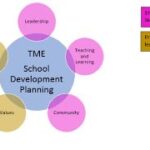Introduction
Teacher education is the cornerstone of quality education. It encompasses various programs and practices aimed at equipping prospective teachers with the knowledge, skills, and attitudes necessary for effective teaching. This essay explores the different aspects of teacher edu, including its importance, types of programs, curriculum content, challenges, and future directions.
Importance of Teacher Education
Teacher education is crucial for several reasons. Firstly, it ensures that teachers are well-prepared to meet the diverse needs of students. A well-educated teacher can adapt their teaching strategies to cater to different learning styles and abilities, thereby promoting inclusive education. Secondly, teacher edu fosters professional development. It helps teachers stay updated with the latest educational research, teaching methodologies, and technological advancements, which can enhance their teaching effectiveness. Lastly, teacher edu contributes to the overall quality of education. Well-trained teachers are more likely to create a positive learning environment, engage students in meaningful learning experiences, and improve student outcomes.
Types of Teacher Edu Programs
Teacher education programs vary widely in terms of structure and content. Broadly, they can be categorized into pre-service and in-service programs.
Pre-Service Teacher Education
Pre-service teacher education refers to the training provided to individuals before they begin their teaching careers. These programs are typically offered by universities and colleges and lead to a bachelor’s or master’s degree in education. They include coursework in educational theory, pedagogy, and subject-specific content, as well as practical teaching experience through student teaching or internships.
In-Service Teacher Edu
In-service teacher education, on the other hand, refers to the professional development opportunities available to practicing teachers. These programs can take various forms, including workshops, seminars, online courses, and advanced degree programs. In-service education aims to help teachers update their knowledge and skills, address specific teaching challenges, and pursue career advancement.
Curriculum Content in Teacher Education
The curriculum of teacher education programs is designed to provide a comprehensive understanding of teaching and learning. It generally includes the following components:
Educational Theory
Educational theory forms the foundation of teacher edu. It encompasses various theories of learning, child development, and educational psychology. Understanding these theories helps teachers create effective instructional strategies and manage classroom dynamics.
Pedagogy
Pedagogy refers to the art and science of teaching. It includes methods and strategies for delivering instruction, assessing student learning, and creating a supportive classroom environment. Pedagogical training helps teachers design engaging lessons, use formative and summative assessments effectively, and differentiate instruction to meet diverse student needs.
Subject-Specific Content
Subject-specific content knowledge is essential for teachers to teach their subjects effectively. Teacher education programs provide deep knowledge of the subjects that prospective teachers will be teaching, whether it’s mathematics, science, language arts, or social studies.
Practical Experience
Practical experience is a critical component of teacher education. It allows prospective teachers to apply their theoretical knowledge in real classroom settings. Student teaching or internships provide hands-on experience in lesson planning, classroom management, and student assessment under the guidance of experienced mentors.
Challenges in Teacher Education
Despite its importance, teacher education faces several challenges. These challenges can hinder the effectiveness of teacher education programs and impact the quality of teaching.
Quality and Consistency
The quality and consistency of teacher edu programs vary widely across institutions and regions. Some programs may not provide adequate training in key areas such as classroom management, differentiated instruction, or the use of technology in teaching. Ensuring high standards and consistency in teacher education is crucial for preparing competent teachers.
Funding and Resources
Limited funding and resources can affect the quality of teacher education programs. Insufficient funding can lead to inadequate facilities, limited access to instructional materials, and a lack of opportunities for practical experience. Investing in teacher edu is essential for providing prospective teachers with the necessary tools and experiences to succeed.
Keeping Up with Educational Changes
The field of education is constantly evolving, with new research, technologies, and teaching methodologies emerging regularly. Teacher edu programs must keep pace with these changes to ensure that teachers are well-prepared for modern classrooms. This requires continuous curriculum updates and professional development opportunities for teachers and educators.
Attracting and Retaining Talent
Attracting and retaining talented individuals in the teaching profession is a significant challenge. Teaching is often perceived as a low-status, low-paying career, which can deter high-achieving individuals from entering the profession. Enhancing the status and attractiveness of teaching through competitive salaries, career advancement opportunities, and professional recognition is essential for attracting and retaining high-quality teachers.
Future Directions in Teacher Edu
The future of teacher education lies in addressing current challenges and embracing innovative practices. Several trends and strategies can help improve teacher edu and better prepare teachers for the demands of modern classrooms.
Emphasis on Technology Integration
With the increasing use of technology in education, teacher edu programs must emphasize technology integration. This includes training teachers to use educational technologies effectively, incorporate digital tools into their teaching, and address issues related to digital literacy and cyber safety.
Focus on Equity and Inclusion
Promoting equity and inclusion in education is a growing priority. Teacher edu programs should focus on preparing teachers to create inclusive classrooms that accommodate diverse learners, including students with disabilities, English language learners, and students from different cultural backgrounds.
Collaboration and Partnerships
Collaboration and partnerships between teacher edu programs, schools, and communities can enhance the quality of teacher preparation. These partnerships can provide prospective teachers with more diverse and practical experiences, facilitate knowledge exchange, and support ongoing professional development.
Lifelong Learning
Lifelong learning is essential for teachers to stay current with educational advancements and continuously improve their practice. Teacher edu programs should instill a culture of lifelong learning, encouraging teachers to pursue ongoing professional development and engage in reflective practice.
Conclusion
Teacher education is vital for ensuring the quality of education and improving student outcomes. By addressing current challenges and embracing innovative practices, teacher educ programs can better prepare teachers for the demands of modern classrooms. Investing in teacher edu is an investment in the future of education, with far-reaching benefits for students, schools, and society.




